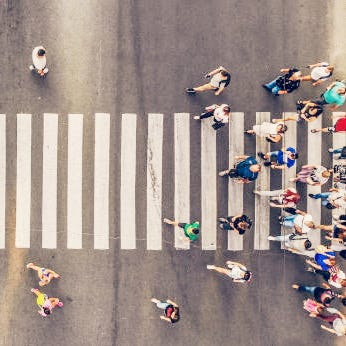I have a vivid memory from when I was eighteen. I had spent the summer living in a tent at Karme Choling, a Buddhist retreat center in Vermont, but by then, as winter approached, the tent had been packed away. I was lying on the empty wooden platform where it once stood, staring up at the stars. My friend Lucy sat beside me. The next day, we would take the Buddhist oath known as the bodhisattva vow.
“Don’t you think it’s a bit much?” she asked.
“What?” I replied.
“Vowing to save all beings? It’s not like I have my own act together.”
“It’s not too much.” I said reflexively, before we fell into a comfortable silence, each contemplating her question.
The next day, despite the enormity of it all, we both took the vow. In essence, it’s a commitment to be of service to others, to help them recognize their own buddha-nature—their innate wakefulness—until all beings attain enlightenment. It’s a promise to put others’ well-being ahead of my own.
As part of the ceremony, you make a physical offering to the Buddhist lineage of teachers who came before you. The item you offer is supposed to be personal; it represents some aspect of your own self-clinging and, in offering it up, you are cutting your attachment to it and that clinging, clearing room to focus on the greater good.
For me at eighteen years-old, it was a particularly audacious shirt - the kind that practically screamed, “Look at me! Look at me!” In letting it go, I was making a quiet declaration: This path is not about me. It’s about others.
I’ve taken the bodhisattva vow seriously. For the past 24 years, I’ve done my best to channel my energy into service. Like everyone I know, I stumble. I make things about me and, in doing so, cause harm—to myself and sometimes to others. But, over the years, I’ve gotten a lot better about that.
The bodhisattva path isn’t about being perfectly compassionate all the time. If it were, I’d already be enlightened. The vow isn’t a declaration of having arrived; it’s a commitment to training on the path. It’s about doing what you can, when you can, as much as possible. It’s about pushing beyond your comfort zone to help others. You don’t have to be perfect to take this path. You just have to be you, but a you with an eye toward the greater good.
Because I’ve spent more than half my life steeped in this perspective, I was caught off guard in a recent conversation with an old high school friend about the election. When I asked why he was voting for Donald Trump, he said, “It will be good for my taxes.”
“My taxes.” Not “our taxes” or “so many people’s taxes.” Just his.
And you know what? He might be right. He is an anesthesiologist and makes a good living. Maybe he, as an individual, will benefit from Trump’s policies. But I also know that many people have suffered under Trump’s leadership. When my friend voted, he voted for his own self-interest, and while it surprised me, I suppose I can understand that. When I vote, I vote for what I perceive to be in the interest of the general public. It’s simply a different orientation toward the world.
I wonder if many of our political divides come down to that: whether we vote for ourselves or for others.
At this moment, I’m writing The Laundry in the waiting room of a hospital. My editor (Adreanna) rejected the last piece I wrote, saying, quite frankly I may note, that it was boring. So here I am on a Thursday, the day of my mother’s cancer surgery, tapping away at my laptop in the waiting room of Berkshire Medical Center (update: by the time you read this, she is safely at home).
The atmosphere here is unexpectedly kind. There is a young family playing together - a mother with her two daughters - waiting for their husband and father to emerge from surgery on his leg. A straight couple sits nearby, with the woman chatting warmly with the older daughter, giving her mom a moment to breathe.
“You’re the nicest girl I’ve ever met,” the older daughter says to her. She looks to be about five, and I imagine has met her fair share of people. She seems quite confident in her assessment.
I smile at the woman, who is waiting for her mom to come out of surgery. I appreciate that, in a setting where most people would be focused solely on themselves and their loved ones, she is reaching out to make the space gentler for someone else. She likely hasn’t taken the bodhisattva vow, but in this moment, she embodies its spirit.
I think of a story about the Korean Zen master Seung Sahn. A student once wrote to him, asking how to explain Buddhism to her parents. His reply was simple:
Keep reading with a 7-day free trial
Subscribe to The Laundry to keep reading this post and get 7 days of free access to the full post archives.








